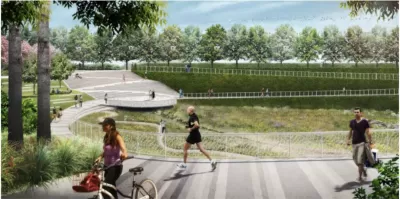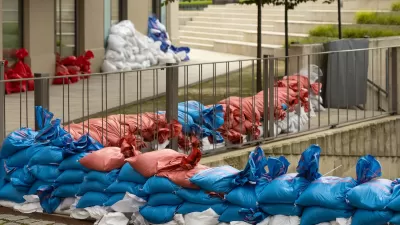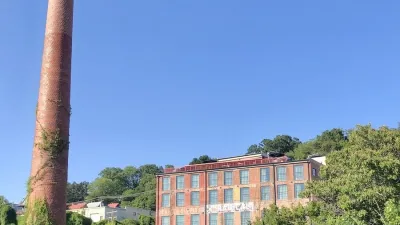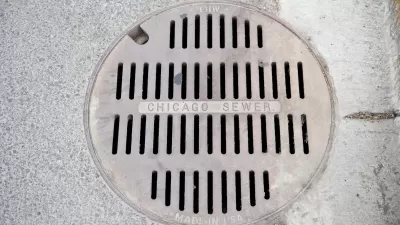As hurricane seasons get more destructive, a less reactionary approach to stormwater infrastructure investment may be needed.

"Disasters like Hurricane Florence and Hurricane Michael only represent a small taste of the expected rise in daily flooding and other chronic environmental threats we're going to face in years to come," Joseph Kane writes. And "reactive" approaches to maintaining current legacy systems will only take us so far.
Kane argues that a more proactive approach to resilience investments is needed, one that incorporates greener, longer-term fixes and accounts for the full economic and social benefits those projects could confer. "Green infrastructure projects like rain gardens can be smaller, more distributed, and efficient over time," he writes. "The immediate returns of these projects may be less clear, relative to the upfront costs, but the reduced runoff, treatment needs, and pollution loads can lead to greater savings."
Current approaches, Kane says, are both reactionary and isolated from other potential positive factors. "We do not adequately account for the costs of inaction that we face from failing stormwater infrastructure, nor do we account for the broader social benefits of more proactive repairs. Workforce development, for instance, can be a central element in this approach."
Capturing the costs of inaction and the full scope of benefits, he says, could lead to more opportunities to utilize ESG investments and social impact bonds, for instance.
FULL STORY: The US needs a new approach to invest in resilient infrastructure and communities

Study: Maui’s Plan to Convert Vacation Rentals to Long-Term Housing Could Cause Nearly $1 Billion Economic Loss
The plan would reduce visitor accommodation by 25,% resulting in 1,900 jobs lost.

North Texas Transit Leaders Tout Benefits of TOD for Growing Region
At a summit focused on transit-oriented development, policymakers discussed how North Texas’ expanded light rail system can serve as a tool for economic growth.

Using Old Oil and Gas Wells for Green Energy Storage
Penn State researchers have found that repurposing abandoned oil and gas wells for geothermal-assisted compressed-air energy storage can boost efficiency, reduce environmental risks, and support clean energy and job transitions.

Private Donations Propel Early Restoration of Palisades Playground
Los Angeles has secured over $1.3 million in private funding to restore the Pacific Palisades playground months ahead of schedule, creating a modern, accessible space that supports community healing after recent wildfires.

From Blight to Benefit: Early Results From California’s Equitable Cleanup Program
The Equitable Community Revitalization Grant (ECRG) program is reshaping brownfield redevelopment by prioritizing projects in low-income and environmental justice communities, emphasizing equity, transparency, and community benefits.

Planting Relief: Tackling Las Vegas Heat One Tree at a Time
Nevada Plants, a Las Vegas-based nonprofit, is combating the city’s extreme urban heat by giving away trees to residents in underserved neighborhoods, promoting shade, sustainability, and community health.
Urban Design for Planners 1: Software Tools
This six-course series explores essential urban design concepts using open source software and equips planners with the tools they need to participate fully in the urban design process.
Planning for Universal Design
Learn the tools for implementing Universal Design in planning regulations.
Ascent Environmental
Borough of Carlisle
Institute for Housing and Urban Development Studies (IHS)
City of Grandview
Harvard GSD Executive Education
Toledo-Lucas County Plan Commissions
Salt Lake City
NYU Wagner Graduate School of Public Service





























